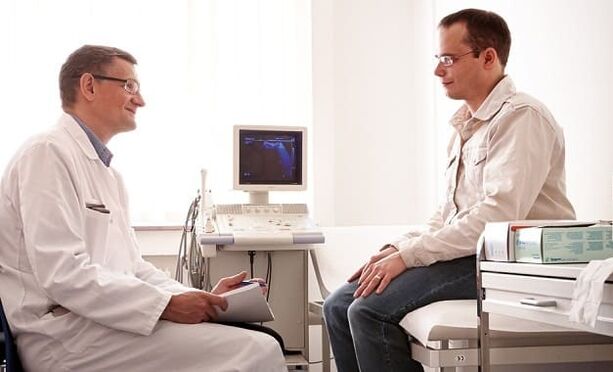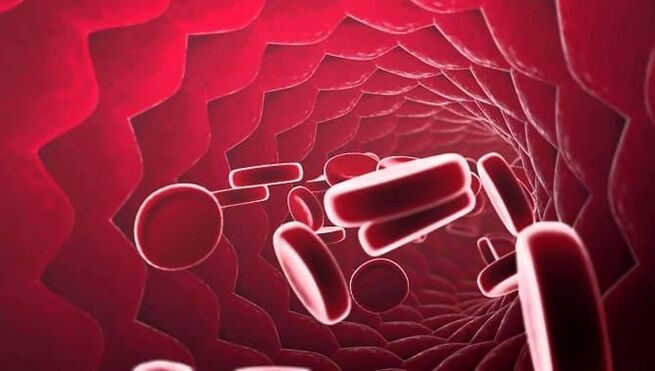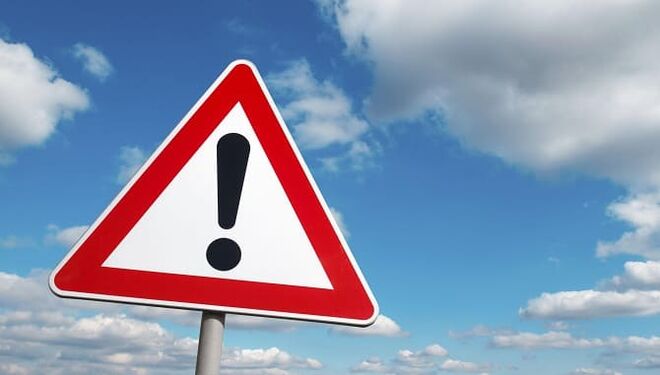Prostatitis is an inflammation of the prostate, accompanied by an impaired sexual function, urine disorder.It is diagnosed on the basis of Bakposev data from prostate juice, clinical blood testing and ultrasound of the pelvic organs.The tablets from prostatitis destroy the pathogenic flora in the prostate, restore the passage of the urine and stop the pain.The conservative therapy includes medicines of different actions - antibiotics, muscle relaxants, analgesics and anti -passion.
Complex approach to treatment
With uncomplicated prostatitis, you use conservative treatment.The basis of the therapy is two types of drugs:
- ETIOTROPE (antibiotics, antiviral agents, antimotics) - destroy the causal infectious agent;
- Symptomatic (non -narcotic analgesics, muscle relaxants, antihistamines) - stop the symptoms or reduce their severity.
In chronic inflammation, prostate massages and physiotherapeutic methods are prescribed -laser therapy, magnetotherapy, transurethral microwave thermotherapy.
Types of medicines used
A doctor's orrologist prescribed tablets for prostatitis.With uncomplicated inflammation of the prostate, it is treated on an outpatient basis.The therapy includes drugs of several pharmacological groups:
- antibacterial;
- anti -spasmodic;
- Pain reliever;
- vasodilate;
- Calming;
- Immunstimulation.
The choice of drugs is influenced by the severity of the clinical image, the type of pathogen, the presence of complications.In prostatitis against the background of urethritis or inflammation of the bladder, an urrospatical is also used - antimicrobial that eliminate the infection in all parts of the urine system.

Before prescribing the medication, Andrologist carries out an examination in which prostatitis is differentiated from diseases with similar symptoms - cancer of neck cancer of the bladder, adenoma and prostate cancer.
Antibiotics
In 8 out of 10 cases, the inflammation of the gland is caused by pathogenic bacteria.Therefore, antimicrobial drugs are prescribed in men in prostatitis.They prefer antibiotics that penetrate glandular tissue and produce high concentrations in them.
Recommended medication:
- Macrolids;
- Fluorchinolone;
- Tetracycline.
The first improvements can be felt 2-3 days after the start of the therapy.But to destroy the pathogenic flora in the genitarian system, antibiotics take at least 4 weeks in a row.
In chronic prostatitis, medication are not prescribed that are poorly accumulated in the tissues of the prostate.Therefore, aminoglycosides are never used for treatment.

The therapeutic effect of most antimicrobial medication depends on the dosage.When treating acute inflammation, it is very important to take tablets in a dose that is required for a bactericide effect.
Anti -inflammatory and painkillers
Non -steroid anti -inflammatory drugs (NSAIDS) are the best remedies for pain and inflammation in the genitarian.Most means of this group inhibit the production of a special enzyme (cyclooxygenase) that provokes inflammatory reactions.
Acute prostatitis ventures severe pain in the pelvic area and in the perineum.
Licking inflammation increases the risk of hyperplasia and prostateadenoma.Therefore, patients with chronic prostatitis are also prescribed drugs that prevent the growth of glandular tissue.
Alpha blocker
Prostatitis is accompanied by inflammation and an increase in the gland, which compresses the urethra.As a result, urine disorders occur - slow and incomplete emptying of the bladder, pain.Alpha blockers are used to restore the passage of the urine.They relax the smooth muscles, which extends the inner diameter of the urethra and the bladder neck.

The medication in this group expand venous and arterial vessels, lower blood pressure.
Alpha blockers can be assigned to the group of the urodynamics group.They do not eliminate the cause of the disease, but facilitate urination.The effect is determined 1-2 weeks after the start of the therapy.
Sedative
Prostatitis is often used for treatment in men.The disease has a negative effect on the quality of life, provokes urine problems, erectile dysfunction.This becomes the cause of neuropsychiatric disorders - emotional instability, depressive condition, neurosis.
In order to improve the psychoemotional state, medication are used:
- Normalize the function of the nervous system;
- Relieve irritability;
- improve sleep;
- Increase stress resistance.

Sedatives increase the effect of antipsychotics and sedatives.Before you take pills, you have to consult a doctor.
Musorelaxants
In recurrent prostatitis, muscle relaxants are prescribed - medication that has a relaxing effect on the smooth muscles.They eliminate the tension of the bladder, urethral canal.To achieve the maximum relaxing effect, they are used in combination with NSAIDs.Musorelaxants reduce the concentration of non -narcotic analgesics that prevents the stomach -intestine mucosa.
Muscle relaxation requirements are used exclusively with high muscle tone, cramp of urinary tract or bubbles.An overdose is affected with nausea, muscle pain and breathing inhibitions.
Musorelaxants are contraindicated in a ulcer of a 12-first damp, psychosis, epilepsy and Parkinson's disease.
Restoration of the blood flow
In order to heal the prostate, blood supply to the pelvic organs must be improved.With the blood flow, the organs receive nutrients that stimulate the metabolism and regeneration of damaged tissues.The systematic absorption of medicines prevents traffic jams, edema and compression of the urethral canal.
Medicines with the following properties are prescribed for the treatment of the gland:
- Vasodilating - Increase the diameter of blood capillaries and blood flow to the pelvic organs;
- Angioprotective - increase the density of the vascular walls, prevent swelling;
- Thrombocyte aggregation assets - prevent platelet gluing.
Preparations to restore blood flow in the pool are used to treat men with slow prostatitis.
Medicines are used exclusively in complex therapy.In order to avoid irritation of the gastric mucosa, boards are taken after eating.
Immune modulators
It is recommended to treat prostatitis with medication that stimulates the operation of the immune system.They increase resistance to infections, which reduces the likelihood of deterioration.
Signs for the reception of immune modulators:
- recurring prostatitis;
- Vitamin mineral failure;
- Secondary immune deficiency;
- Chronic bacterial inflammation.

In the event of premature refusal to treat the body's resistance, the infections are reduced.For this reason, the likelihood of relapse of prostatitis increases.
In order to achieve the desired therapeutic effect, immune modulators are taken in courses for 2-8 weeks.
Phytotherapeutic agent
Preparations that are based on components of plant and animal origin do not increase the drug on the body.They are well tolerated, do not provoke serious side effects.
Natural drugs are suitable for the treatment of prostatitis and other urological pathologies such as adenoma or glandular hyperplasia.
Preparations for medical herbs often provoke allergic reactions and urticaria.Therefore, with hypersensitivity to components, it is better not to be treated with Phyto-Means.
Vitamins
Vitamin mineral deficiency is one of the most common causes of a relapse of the bacterial infection in the genitator system.In order to strengthen immunity, the lack of nutrients is filled.Therefore, vitaminized active ingredients are prescribed in prostatitis.
Tablets with several bioactive components fill vitamins.For this reason, the metabolism is accelerated, cellular immunity is strengthened.
It is recommended that polyvitamins are carried out twice a year to prevent exacerbations of prostatitis in autumn and spring.They reduce the risk of hypovitaminosis, colds and metabolic disorders.
The risk of self -medication
Prostatitis is a urological disease that often goes into a chronic course.Therefore, it is not recommended to take drugs without prescribing a doctor.Self-medication is affected with disorders in the work of the urinary and reproductive system.Irrational therapy is dangerous:
- Chronic prostatitis;
- erectile dysfunction;
- Acute urinary retention;
- Urolithiasis;
- Infertility;
- Supplement in the prostate;
- Narrowing of the urethra.
Incorrectly selected antibiotics do not destroy the infection, which causes astray inflammation of the gland.The abscess of the prostate is an indication of surgical intervention.
Prostatitis is a male illness, inflammation of the prostate.The therapy is good for timely and proper treatment.With a transition to a chronic form, however, it often provokes complications.Therefore, on the first sign of prostatitis - difficulties in urination, pain in the perineum, blood in the urine - a urologist or andrologists must contact.


























